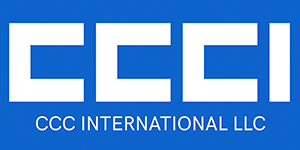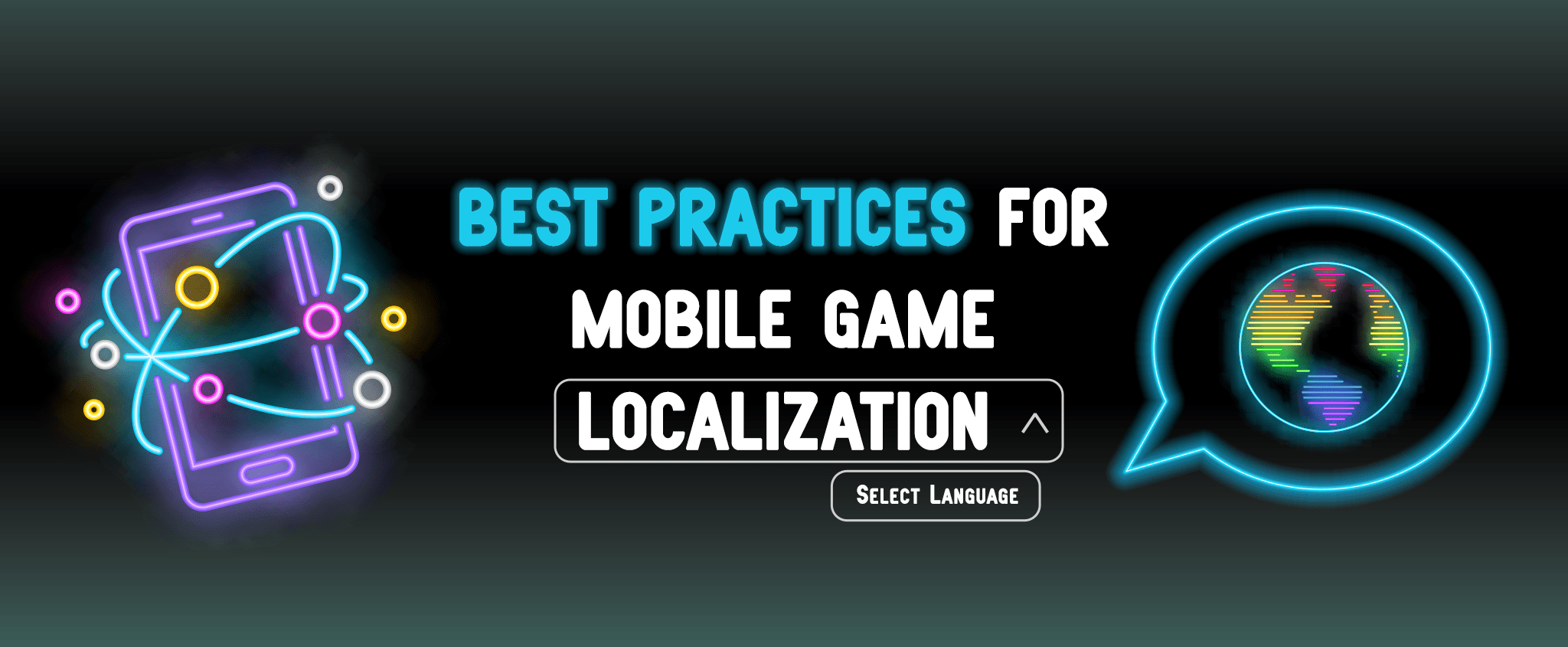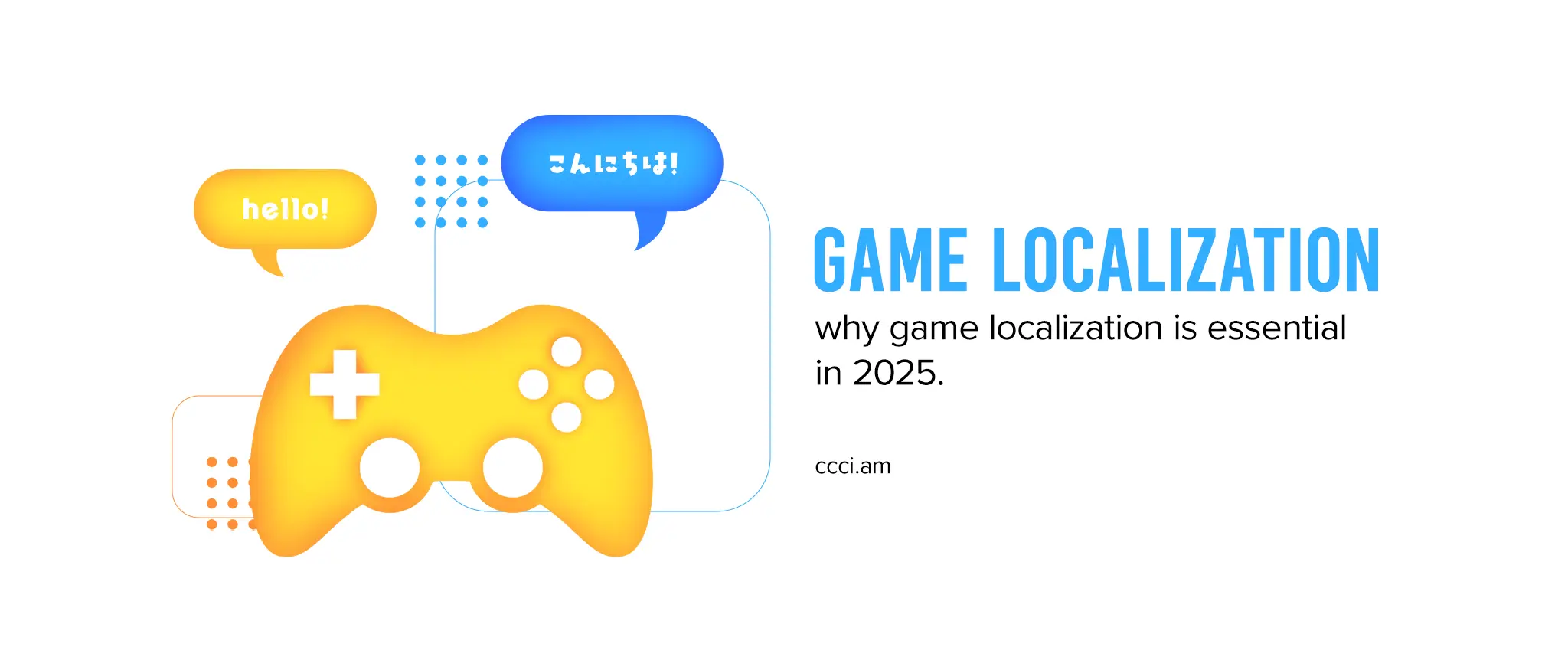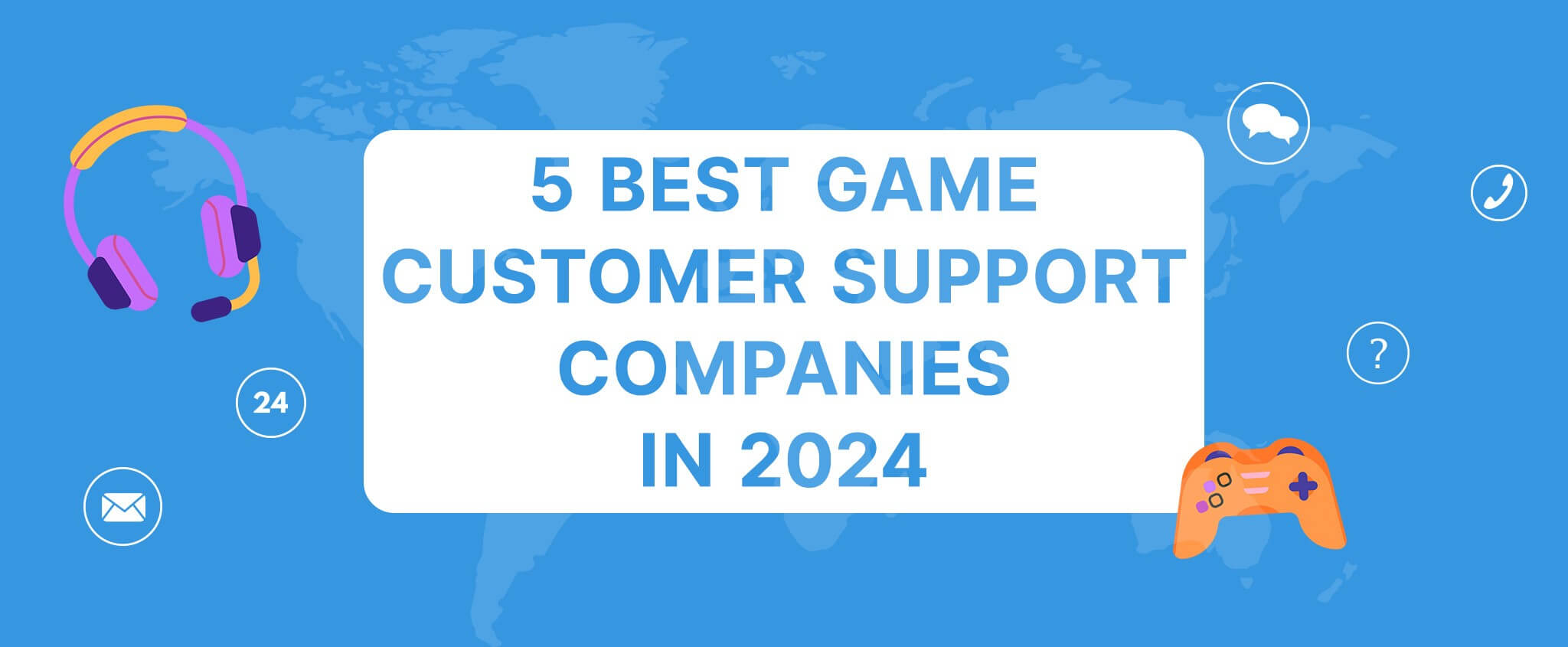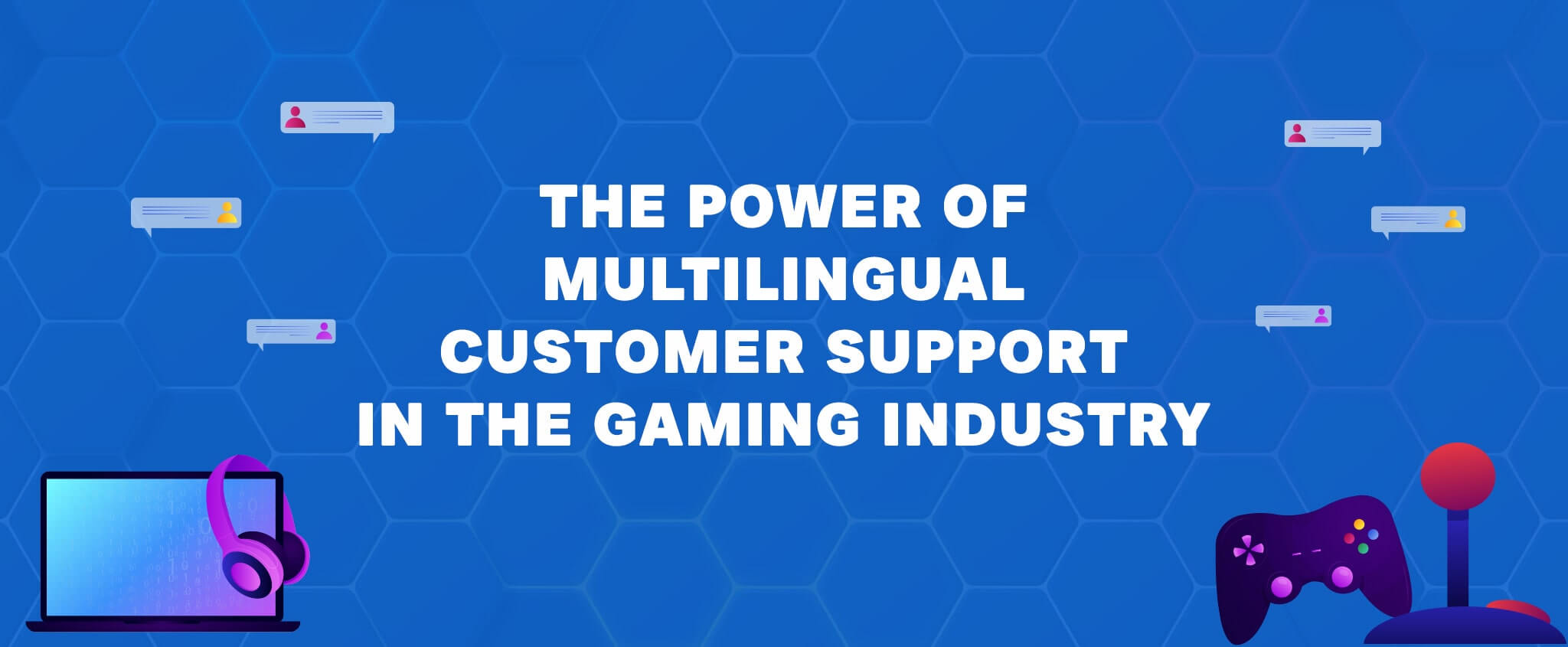Best Practices for Mobile Game Localization
Gaming, a pastime that began with humble origins, has become a global phenomenon. It was all about arcades, 8-bit consoles, and simplistic games that offered pure joy in the early days. Fast forward to today, and the gaming industry is a multi-billion dollar enterprise, with a wide array of genres and platforms capturing audiences’ attention worldwide. One crucial cog in this vast gaming machine is the process of game localization.
At CCC International, we’re ready to explore the world of game localization with you. What is it, and why should you invest in it? Let’s take a look!
Key Takeaways:
- What is game localization? It’s the process of adapting a game to different cultures and languages, so players worldwide can enjoy it in their native tongues.
- Mobile game localization has helped game developers reach a global audience, putting games on top of the charts in multiple countries.
- It’s best to work with a reliable mobile game localization company with a professional mobile game translator, native language speakers, and extensive experience in the gaming industry.
Table of Content:

What Is Game Localization?
Mobile game localization is a process that adapts a video game to a new locale or culture beyond simple translation. It involves adjusting various game elements, including text, audio, visuals, and cultural references, to make it more accessible and appealing to players in different regions.
Note: Localization and translation are two distinct processes. While translation deals with the written text, localization focuses on adapting everything to appeal to different countries and cultures. Translation is a part of the localization process, but it’s not the full picture.
What Are the Benefits of Localizing Mobile Games?
In 2022, the global gaming industry generated nearly USD 347 billion in revenue. A significant portion of this, approximately USD 248 billion, was attributed to the thriving mobile gaming sector. The global reach of iconic games, such as Pokémon Go, Clash of Clans, and Candy Crush, and the most expensive video games, like Grand Theft Auto V and Final Fantasy VII, is nothing short of impressive.
Behind the scenes, game localization has been instrumental in helping these mobile games achieve this level of success. Here are the many ways game localization can benefit you:
- Expand Market Reach: Localizing your mobile game allows you to tap into new markets and reach a wider audience. Players are more likely to engage with a game they can understand and relate to, and localization achieves just that.
- Enhanced Player Experience: Localization enhances the player’s experience by making the game more relatable and enjoyable. It implies understanding and respecting the player’s culture.
- Improved Competitive Edge: In today’s global gaming landscape, localizing your mobile game can give you a competitive edge. It indicates that the developers care about their international players.
- Increase Revenue: With an expanded market reach comes increased revenue. More players mean more downloads, in-app purchases, and ad views.
The Challenges of Game Localization
Game localization is an excellent investment, but it is not without its challenges. For game businesses aiming to share their product with a global audience, here are some of the biggest hurdles to overcome with localizing a game:
?Language Translation: Each language has unique idioms, phrases, and cultural nuances that need consideration to avoid misunderstanding or offense.
?Cultural Sensitivity: Even minute details, like symbols, colors, or gestures, can have different connotations in various cultures.
?Technical Compatibility: The game’s coding might need to accommodate languages that read from right to left or cope with languages that require more or less space in the user interface.
?Game Customer Support: When you make your game available to a larger audience, it’s integral also to provide customer support in the gamer’s native language to create a seamless experience
The Process of Localizing Mobile Games
Localizing a mobile game is an intricate procedure that requires a team of professionals. Let’s dive deeper into the steps involved in this process:
- Project Assessment: This initial phase involves understanding the scope of the project, the target audience, and the specific aspects that need to be localized.
- Translation: A mobile game translator translates the game’s content, including dialogues, menus, and instructions, into the target language.
- Cultural Adaptation: The game is then culturally adapted to align with the target region’s traditions, customs, and societal norms.
Pro Tip: During the cultural adaptation stage, involve native speakers from the target region who are also gamers. They will most likely catch cultural mismatches, offensive content, or non-translatable game elements.
- Technical Adaptation: Experts make any technical adjustments necessary to support the new language, such as altering the text direction for languages or adjusting the user interface.
- Localization Testing: The game undergoes thorough testing to ensure the localized version functions correctly, is culturally appropriate, and offers a smooth user experience.
- Launch and Post-Launch Support: After successful testing, you release the game in the new market and provide ongoing support.
Game Localization Best Practices
It’s a demanding process, but it’s a must for any game developer who wants to expand their audience globally. For every mobile game localization project, keep these seven best practices in mind:
Prepare Your Source Code
Before localization begins, developers must prepare the source code for translation. Extract all strings from the code into a separate file and separate any words you could combine during translation. Doing this will help translators save time and ensure accurate game translation.
Provide Context For Translators
Context is key! When giving instructions to translators, include details on the characters’ personalities and objectives and any other elements that might not be evident in the source code. Moreover, provide translators access to art assets, screenshots, and other materials to help them understand the game better. This practice will help translators understand how their work will fit into the game.
Prioritize Cultural Concerns
You should never limit the process of localization to translation. Localizing content that could be culturally offensive or illegible in certain countries is vital. Understanding international cultures will help you identify which references are safe to use and which you need to change. The best practice is to do extensive research before releasing the game.
Have Dedicated Teams For Every Task
Having teams to manage each task in the localization process is crucial for success. It includes assigning tasks to separate people, such as having a specific mobile game translator and tester. Doing this will help you ensure accuracy and speed up the time-to-market of your game.
Leverage Automation To Streamline The Process
Automation can be a great way to streamline the localization process. Many tools and platforms help simplify tasks such as string extraction, file format conversions, and project management. Leveraging these technologies can help you save time, reduce errors, and improve consistency.
Do Regular Feedback and Quality Checks
No matter how well you localize your game, some areas will always need improvement. Implement regular feedback and quality checks to ensure the highest quality of localized content. This step will help you identify errors and adjust before releasing the game. It will also give you a better understanding of how you can improve certain elements of localization.
Test The Game
Testing is perhaps the most crucial part of the localization process. Test your game in all languages and countries you plan to release it in to ensure that everything looks and plays as it should, without bugs or errors from a cultural standpoint. A localized game should feel just as fluid and intuitive as the original version.
Pro Tip: Having someone who hasn’t seen the original gameplay can help spot any inconsistencies. Someone who knows the language but doesn’t know the game can spot mistakes more easily than someone familiar with both.
Work With Professionals
Finding a reliable localization partner is the best way to ensure your game is translated accurately and released on time. Professional localization teams have the expertise, experience, and resources necessary to handle the game adaptation process for foreign markets. You can save time and money by leveraging the latest technologies and techniques and spending more effort on other aspects of the release.
CCCI – Top-Notch Mobile Game Localization Company
At CCCI, we pride ourselves on being a leader in the field of mobile game localization. We aim to make your games accessible and enjoyable for players worldwide, breaking down language barriers and creating immersive gaming experiences. Our skilled team specializes in video game localization, meticulously adapting game content to resonate with different cultures, languages, and regions.
Our services extend beyond localization. Recognizing that post-launch support is just as critical, we provide robust game customer support services. We work in over 30 languages, including Japanese, Korean, Chinese, and English. Whichever language you choose, you can be confident that your game will reach the players who need it in the format they expect and deserve.
Are you ready to take your mobile game to the next level? Contact CCCI today!
